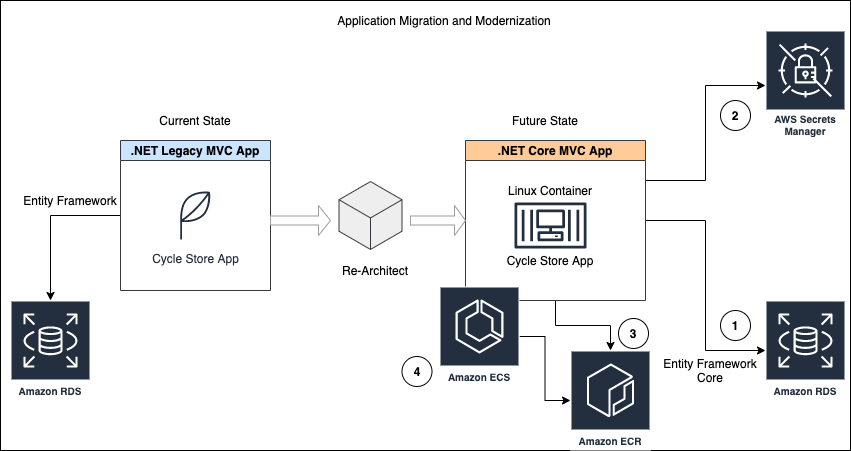AWS DevOps & Developer Productivity Blog
Tag: .NET Core
Build Next-Generation Microservices with .NET 5 and gRPC on AWS
Microservices commonly communicate with JSON over HTTP/1.1. These technologies are ubiquitous and human-readable, but they aren’t optimized for communication between dozens or hundreds of microservices. Next-generation Web technologies, including gRPC and HTTP/2, significantly improve communication speed and efficiency between microservices. AWS offers the most complete platform for builders implementing microservices — and the addition of HTTP/2 and gRPC support in Application Load Balancer (ALB) provides an end-to-end solution for next-generation microservices. ALBs can inspect and route gRPC calls, enabling features like health checks, access logs, and gRPC-specific metrics. This post demonstrates .NET microservices communicating with gRPC via Application Load Balancers.
Modernizing and containerizing a legacy MVC .NET application with Entity Framework to .NET Core with Entity Framework Core: Part 2
This is the second post in a two-part series in which you migrate and containerize a modernized enterprise application. In Part 1, we walked you through a step-by-step approach to re-architect a legacy ASP.NET MVC application and ported it to .NET Core Framework. In this post, you will deploy the previously re-architected application to Amazon […]
Automated CI/CD pipeline for .NET Core Lambda functions using AWS extensions for dotnet CLI
The trend of building AWS Serverless applications using AWS Lambda is increasing at an ever-rapid pace. Common use cases for AWS Lambda include data processing, real-time file processing, and extract, transform, and load (ETL) for data processing, web backends, internet of things (IoT) backends, and mobile backends. Lambda natively supports languages such as Java, Go, […]
Modernizing and containerizing a legacy MVC .NET application with Entity Framework to .NET Core with Entity Framework Core: Part 1
Tens of thousands of .NET applications are running across the world, many of which are ASP.NET web applications. This number becomes interesting when you consider that the .NET framework, as we know it, will be changing significantly. The current release schedule for .NET 5.0 is November 2020, and going forward there will be just one […]



